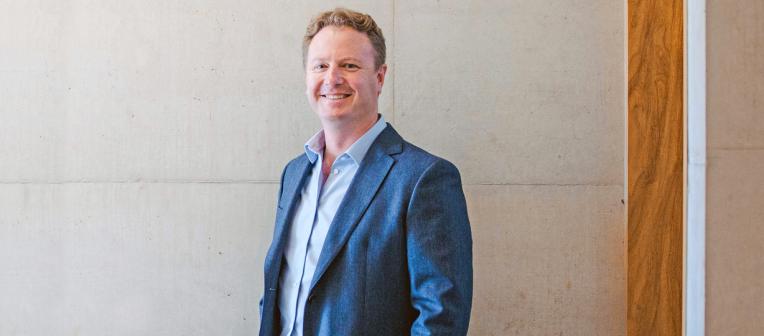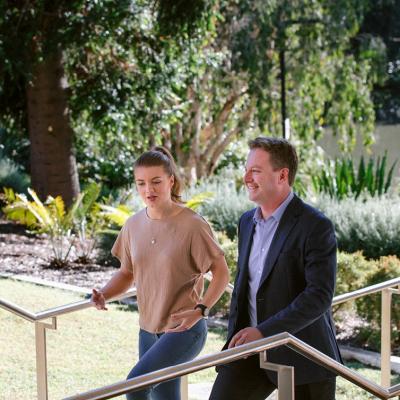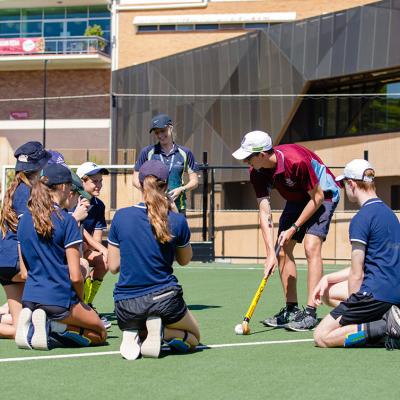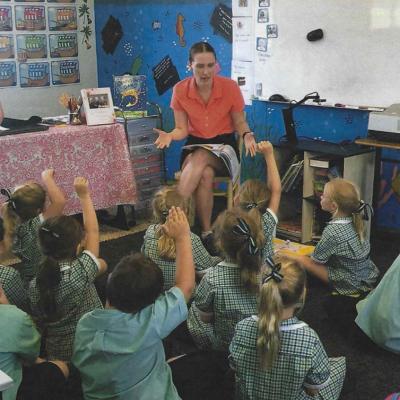Creating challenging and supportive environments for people to thrive in is Paul Treschman’s passion.
Not available in your region? Watch here.
What motivates a sports and health teacher?
An experienced educator in motivation, feedback and interpersonal skills, specifically in the world of physical education, Associate Lecturer Paul Treschman is fascinated by how different people respond in different environments.
“That’s what drives me,” he says.
“I’ve seen how some people can flourish in certain environments, yet those same people may struggle to learn and perform in a different context. So, I’m passionate about understanding and creating environments where people can thrive. I try to do that by providing safe, supportive settings, but also challenging the students at the same time."
“It’s not that I accept where students are at is where they should remain. I want students to feel comfortable to extend themselves, to take risks, to make mistakes and to see the benefit to themselves and others in those risks. By doing so, this creates a climate where everyone wants to learn and improve. I believe that teaching is based on relationships and through these relationships we are able to bring out the best in people.”

A role model for students
The influence that a teacher’s language and actions can have on a student’s motivation, performance and ability to learn are important areas of consideration for Paul. He is aware that he needs to model these appropriate behaviours if he wants his students to do the same.
“When starting out at university, students may feel daunted or overwhelmed, because they aren’t fully aware of what they may face in the future,” he says.
“In response, we slow things down, we break the learning experiences into smaller, more predictable settings, and then as we progress, we increase the complexity and make things more challenging – but the support is always there."
“Students aren’t thrown in the deep end straight away and expected to swim. They are provided with the necessary support throughout their university experiences, so that by the time they graduate they are confident to work in a variety of settings."
“When students start work, they will be exposed to different environments, different contexts, different people and different challenges, so it’s important we don’t hide them away from these experiences," says Paul.
"Providing a variety of experiences and exposing students to opportunities and challenges, while we simultaneously support them is important, so that they feel prepared and excited in their chosen careers.”
Paul's career highlights
While nominating one standout moment from his time at UQ is difficult for Paul, it inevitably boils down to the ability to disseminate his teachings via his students to a much wider section of the community. Seeing more people confident, active and healthy as a result of having a good educator is the greatest reward that can be received.
“If forced to nominate one, a moment that stands out was when I visited a student on their professional experience,” he says.
“I loved seeing the impact that I potentially had on that student, and then how that student had an impact on other people. It’s the ripple effect that’s really exciting for me."
"I remember observing from this particular lesson some disengaged students at a high school, not interested in exercise, not interested in movement, but the teaching strategies and investment in the relationship that this particular undergraduate teacher displayed had a very positive impact on these students.”
“That was directly due to what that student teacher had learnt at UQ.”
Meet some other UQ academics or learn more about the Bachelor of Health, Sport and Physical Education (Honours).






